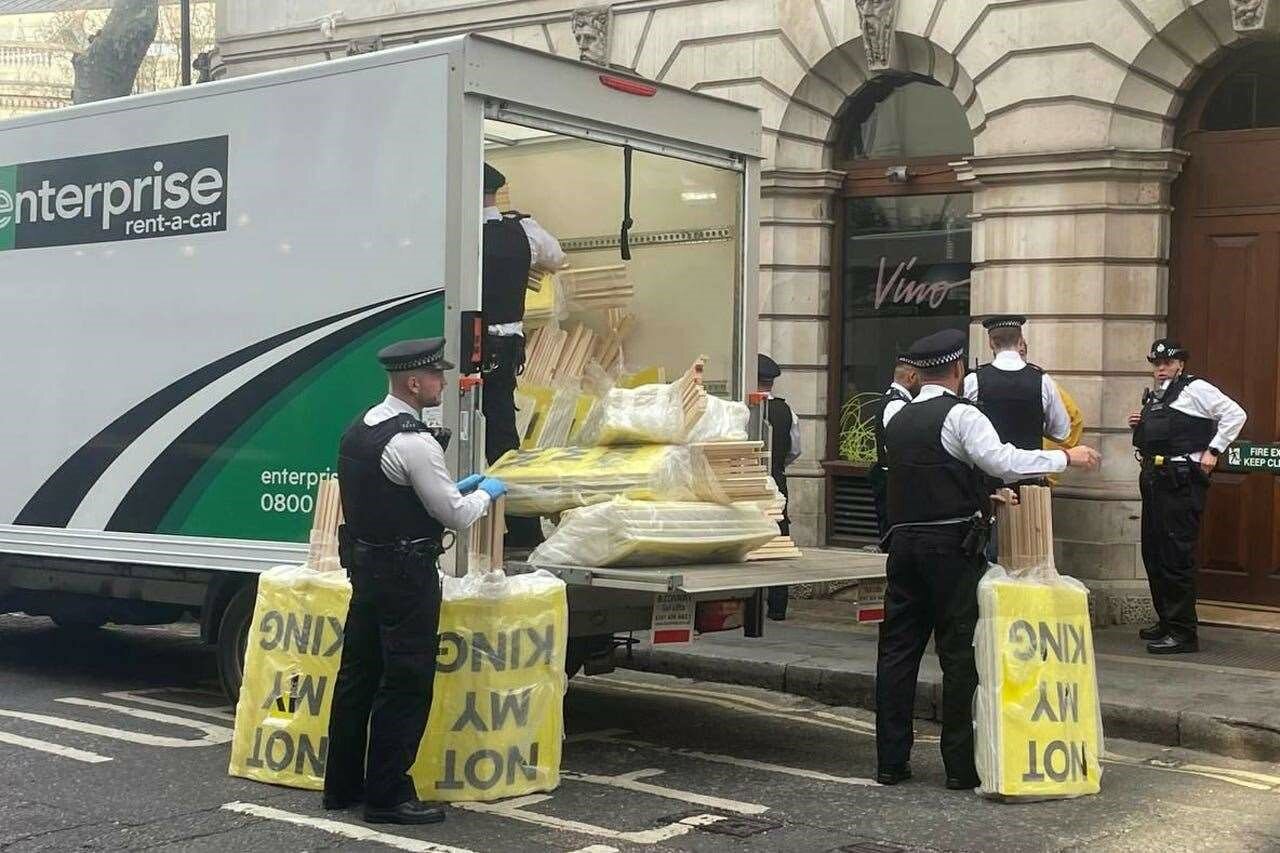How have the Metropolitan Police policed the King’s coronation and how has their use of Twitter been criticised?
Last week I wrote about the Metropolitan Police’s tweet, in which they described how any protest or disruption aimed at the King’s coronation would not be tolerated. So, a week later, how have the Met acted on this tweet and what does it show about the police’s use of social media to communicate?
On Saturday the 6th of May, coronation day, various arrests were made by the Metropolitan Police, predominantly anti-monarchy protestors. Concerning images began circulating social media of police seemingly confiscating placards and handcuffing peaceful protesters. Various video recordings were also uploaded to social media, with one police officer from London’s City Police telling a protester that ‘he wouldn’t advise’ the protesters to chant ‘not my king’ and another with a Met Police officer refusing to state why the arrests had been made.
It was also revealed that the Met had arrested three night safety volunteers in the early hours of the Saturday morning, alarmingly for the crime of possessing rape alarms. The Met later claimed on Twitter that they had received ‘intelligence’ that the rape alarms may be used to disrupt the coronation, despite the volunteers being part of an official night safety team and even having the Metropolitan Police logo on their uniforms.
What seems to be a pattern in these various arrests is the use of Twitter by the Met to communicate and explain their actions, which only seemed to damage their case even more. Initially, the tweet they posted regarding the arrest of the night safety officers stated that protesters intended to ‘throw rape alarms at the procession’ which was quickly deleted once it became clear that this claim was baseless. The tweet was replaced by another with different wording, replacing the word ‘throw’ with ‘disrupt’, which is a clear and worrying difference. Why are the Met Police tweeting inaccurate information about the actions of peaceful protesters? The change in wording, whilst appearing subtle, is significant because it indicates that the police were attempting to justify their actions by painting the protesters as violent and unruly. The revised tweet also failed to state that the people arrested were members of the Met-authorised night safety team, which, to the casual observer, would give the impression that those arrested were simply disruptive protesters. As the reaction on social media demonstrated, such actions call into question the legitimacy of the Met’s official statements, and, yet again, gives the impression of a cover up within the force.
The police’s revised tweet, which referred to how the potential disruption using rape alarms would startle the military horses taking part in the procession, was even fact-checked by a member of the public, using the ‘context’ feature on Twitter. The context was attached to the Met’s tweet, stating that police horses are trained to cope with loud noises and crowds, so the claim that the arrests were made in the interest of the safety of the horses was baseless. This is significant because such actions undermine public confidence in the police’s ability and trustworthiness, perhaps preventing people from reporting crime to the police or approaching officers for help. It also, yet again, gives the impression that the Met are taking a political stance in relation to the Royal Family and silencing any dissent. It does not give a positive impression of the police force that they are seemingly hiding behind claims of protecting horses in order to protect themselves.
It remains to be seen how the Metropolitan Police will react to future protest in the capital, but it is already clear that they want to be seen to take a tough stance. Throughout the week, their Twitter account has been tweeting updates on their response to various protests around the city, whether eco protesters such as Just Stop Oil or republican protesters. It does not seem that the recent reaction regarding their use of social media has prevented them from taking such a hard-line. The government’s introduction of the Public Order Bill has not helped in this regard – it seems likely that the Met, and other police forces around the country, will continue to feel emboldened in their actions against protestors.


